10 Pollution Books Leading Experts Recommend for Impact
Insights from Richard Branson, Elon Musk, and Naomi Klein on critical Pollution Books shaping environmental thought
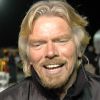
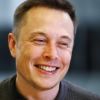
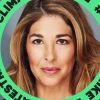


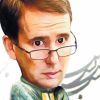
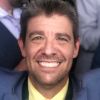
What if you could glimpse the consequences of pollution not just through headlines, but through the eyes of those who have wrestled with its realities on the front lines? Pollution isn't an abstract issue—it's reshaping our world in ways both visible and hidden, from choking urban air to silent plastic tides. This collection of books pulls back the curtain on the challenges and choices humanity faces today.
Leaders like Richard Branson, founder of Virgin Group, have praised works that lay bare the climate crisis while offering paths forward. Elon Musk, known for pioneering sustainable technologies, highlights books unveiling the misinformation muddying public understanding. Meanwhile, journalist and activist Naomi Klein challenges us to rethink economic systems fueling pollution. Their experiences and endorsements bring weight to these selections.
While these expertly curated books offer proven frameworks and deep insights, your specific interests—whether in air quality, waste management, or environmental ethics—might call for a more tailored approach. Consider creating a personalized Pollution book that builds on these expert insights to fit your background, goals, and areas of concern.
Recommended by Richard Branson
Founder and CEO of Virgin Group
“There could not be a more important book.” (from Amazon)
Christiana Figueres, Tom Rivett-Carnac(you?)·
Christiana Figueres, Tom Rivett-Carnac(you?)·
Christiana Figueres' decades of climate diplomacy experience culminate in this book, co-authored with Tom Rivett-Carnac, offering a vivid contrast between two possible futures shaped by our response to pollution and climate change. You get a clear-eyed look at the stakes involved, including detailed scenarios for 2050 if current emissions targets fail versus a regenerative, net-zero world. The book goes beyond doom-and-gloom to outline concrete roles for governments, corporations, and individuals, with chapters that emphasize collective action and personal responsibility. If you're seeking both a realistic understanding and hopeful direction on climate challenges, this book lays out the choices we face with unvarnished clarity.
David Wallace-Wells(you?)·
David Wallace-Wells(you?)·
David Wallace-Wells, leveraging his experience as a New York magazine columnist, challenges the common perception that climate change effects are limited to rising sea levels. Instead, he presents a stark and meticulously documented account of the cascading crises warming will trigger, including food shortages, climate wars, and economic collapse. You gain a detailed understanding of how climate change will reshape geopolitics, technology, and global sustainability, especially through his vivid chapters on climate refugees and capitalism’s vulnerabilities. This book suits those seeking a sobering, fact-driven exploration of humanity’s near future rather than optimistic reassurances.
This tailored guide explores pollution challenges through a lens uniquely shaped by your background and goals. It examines key pollutants, their sources, and impacts, while addressing the complexities of air, water, and soil contamination. The book reveals how various pollution types interconnect and affect ecosystems and human health. By focusing on your specific interests, it offers a personalized pathway to understanding and managing pollution issues relevant to your environment and expertise. This approach ensures you engage deeply with content that matches your experience level and learning objectives, making the journey both insightful and practical. The result is a focused, tailored exploration of pollution mastery that builds on expert knowledge while meeting your unique needs.
Recommended by Robert Kennedy
American environmental attorney and politician
“Naomi Klein is a genius. She has done for politics what Jared Diamond did for the study of human history.” (from Amazon)
Naomi Klein(you?)·
Naomi Klein(you?)·
Naomi Klein's decades of investigative journalism and activism fuel this incisive critique of how capitalism intersects with the climate crisis. You’ll explore why the free market approach, rather than solving climate change, exacerbates environmental degradation and social inequality. Klein lays out a detailed argument for dismantling entrenched economic systems and rethinking political priorities to achieve meaningful emissions reductions. For example, she highlights grassroots movements building regenerative economies as tangible alternatives to fossil fuel dependency. This book suits you if you’re interested in environmental policy, economic reform, and the social implications of climate change, though it demands a willingness to confront uncomfortable truths about current systems.
Recommended by Bill Hanage
Assoc Prof at Harvard T. H. Chan School of Public Health
“I’d also note that decent people with genuine scientific concerns can still be mistaken. And that there are some political concerns that will delight in any opportunity to diminish science. It’s an old plan laid out in the book and movie Merchants of Doubt” (from X)
Naomi Oreskes, Erik M. Conway(you?)·
Naomi Oreskes, Erik M. Conway(you?)·
What happens when historians of science scrutinize decades of public misinformation campaigns? Naomi Oreskes and Erik M. Conway expose how a small group of influential scientists, intertwined with political and corporate interests, systematically cast doubt on well-established research about tobacco, acid rain, and climate change. You’ll gain insight into the tactics used to blur scientific consensus, including repeated denial of evidence by the same figures across different environmental issues. Chapters dissect how media complicity and ideological motives clouded public understanding, making this essential reading for those wanting to grasp the intersection of science, politics, and pollution. This book suits anyone invested in environmental policy, science communication, or the history behind today’s climate debates.
Recommended by Antonis Mavropoulos
President of the International Solid Waste Association
“This is a book worthy to read because it brings a fresh perspective to a long-standing problem, the continuously but silently increasing waste crisis. Adopting the socio-ecological perspective and digging deeper to material flow analysis, urban metabolism and environmental justice narratives, the book not only presents the on-going waste crisis but documents the need for a systemic shift towards a new scientific paradigm that will start from governance. The need for a new global governance pattern that will include not only waste but mainly material flows is one of the key-elements of the systemic shift required and its necessity is one of the most important outcomes of this book. I also believe that the book includes valuable suggestions that bridge the gap between the mainstream circular economy discussion and the role of waste management. I strongly suggest this book to any professional, researcher or decision-maker that deals with waste management, especially to the ones that are looking for a fresh perspective and are dealing with global waste flows.” (from Amazon)
After analyzing international waste policies and environmental justice narratives, Kamila Pope presents a detailed examination of the global waste crisis rooted in socio-ecological challenges. You gain insights into cross-border waste management practices, legal frameworks from various countries, and the shortcomings of current governance models. Notably, the book proposes a new governance framework that integrates ecological sustainability with social justice, bridging gaps between circular economy debates and waste flow realities. If you're engaged in environmental law, policy-making, or sustainability research, this book offers a nuanced perspective that goes beyond technical waste management to address systemic global issues.
TailoredRead AI·
This tailored book explores an action-oriented path for those eager to make swift progress in understanding and addressing pollution. It examines key pollution sources, health impacts, and environmental effects, all aligned with your unique goals and interests. By focusing on your background, it delivers a personalized roadmap that breaks down complex issues into manageable, clear steps for immediate engagement. The book reveals practical steps for rapid pollution awareness and intervention, empowering you to transform knowledge into action within 30 days. This personalized approach ensures the content resonates deeply, making your journey through pollution challenges both effective and motivating.
Francis A. Schaeffer, Udo W. Middelmann(you?)
Francis A. Schaeffer, Udo W. Middelmann(you?)
Drawing from his background as a philosopher deeply engaged with theology, Francis A. Schaeffer explores the ecological crises of modern times through a biblical lens in this 1970 work. You’ll find a thoughtful examination of issues like landfills, toxic waste, and ozone depletion, paired with a call for Christians to rethink their role in stewardship of the earth. The book includes appendices by historian Lynn White Jr. and sociologist Richard L. Means, enriching the discussion with historical and sociological perspectives. If you want to understand pollution from a faith-informed viewpoint that challenges secular environmental narratives, this book will give you a distinct, reflective framework.
Joanne E. Drinan, Frank Spellman(you?)·
Joanne E. Drinan, Frank Spellman(you?)·
Joanne E. Drinan draws from her extensive background in the U.S. Navy and her administrative role in a major wastewater treatment district to offer an accessible guide for those new to water and wastewater treatment. You’ll learn about the fundamental unit processes involved in treating drinking water and wastewater without getting bogged down in complex math or science. Chapters explain how each process functions and fits into the overall system, complemented by clear illustrations and summaries that make concepts easier to grasp. This book suits professionals in environmental science, policy makers, or anyone needing a solid understanding of water treatment operations without an engineering degree.
Beth Gardiner(you?)·
Beth Gardiner(you?)·
When Beth Gardiner first uncovered the widespread impact of air pollution, she set out to reveal how this invisible threat quietly damages health worldwide. You gain a detailed understanding of air pollution's connections to strokes, cancer, and premature birth, along with insights into the political and economic forces shaping environmental policy. Gardiner takes you to diverse settings—from Washington’s regulatory halls to heavily polluted cities like Delhi—offering a nuanced view of progress and setbacks. This book benefits anyone interested in environmental health, policy, and the human stories behind air quality struggles, providing both scientific context and a call to action grounded in real-world examples.
Johan Eklöf, Elizabeth DeNoma(you?)
Johan Eklöf, Elizabeth DeNoma(you?)
Drawing from his work as a Swedish conservationist, Johan Eklöf examines the pervasive effects of light pollution on ecosystems and human health. You learn how artificial lighting disrupts circadian rhythms crucial to insects, birds, bats, and people alike, influencing behaviors such as reproduction and sleep patterns. The book offers vivid examples like moths drawn to streetlamps and the decline of nocturnal creatures, showing the cascading impact on biodiversity. If you care about environmental balance or your own well-being, this book challenges you to rethink the role of night and light in modern life.
Patty Mechael(you?)
Patty Mechael(you?)
When Patty Mechael crafted this narrative, she tapped into the urgent reality of plastic pollution through the eyes of young protagonists navigating a crisis in the Chesapeake Bay. Your journey with the Antidotes reveals how environmental science and public health intersect, demonstrating STEM applications in real-time problem solving. The book offers a unique blend of environmental education and storytelling, highlighting community activism and the power of youth engagement in pollution solutions. It's an insightful pick if you're looking to understand pollution impacts and inspire younger audiences or educators focused on environmental stewardship.
Conclusion
Together, these 10 books weave a rich tapestry of pollution's many dimensions—from global climate policy and economic critique to the personal stories of communities grappling with contamination. If you're confronting policy challenges, start with "This Changes Everything" and "Merchants of Doubt" to grasp systemic forces and misinformation. For those seeking scientific grounding, "Water and Wastewater Treatment" and "Global Waste Management" provide practical frameworks.
Rapidly evolving environmental health concerns find voice in "Choked" and the ecological insights of "The Darkness Manifesto." For a spiritual reflection, "Pollution and the Death of Man" invites a faith-informed perspective. Youth educators and activists will find "The Antidotes" especially inspiring.
Alternatively, you can create a personalized Pollution book to bridge the gap between general principles and your specific situation. These books can help you accelerate your learning journey and deepen your impact on environmental challenges.
Frequently Asked Questions
I'm overwhelmed by choice – which book should I start with?
Start with "The Future We Choose" for a clear picture of possible futures shaped by pollution and climate action. It balances urgency with hope, making complex topics accessible and inspiring your next steps.
Are these books too advanced for someone new to Pollution?
Not at all. Titles like "Water and Wastewater Treatment" explain fundamentals clearly, while others like "The Antidotes" engage younger readers. The list offers a range from introductory to in-depth analysis.
What's the best order to read these books?
Begin with broad overviews such as "The Future We Choose" and "The Uninhabitable Earth," then explore focused topics like waste management or misinformation. Tailor the order based on your interest areas.
Should I start with the newest book or a classic?
A mix works best. Recent books like "The Darkness Manifesto" offer fresh perspectives on light pollution, while classics like "Merchants of Doubt" provide foundational understanding of scientific denial relevant today.
Do I really need to read all of these, or can I just pick one?
You can start with one that matches your focus, but these books complement each other by covering diverse angles—from policy and science to ethics and activism—offering a fuller picture when combined.
How can personalized Pollution books complement these expert recommendations?
Personalized books build on expert insights, tailoring content to your background, goals, and specific pollution concerns. They help bridge general knowledge and your unique needs. Learn more with this personalized Pollution book option.
Help fellow book lovers discover great books, share this curated list with others!
Related Articles You May Like
Explore more curated book recommendations









